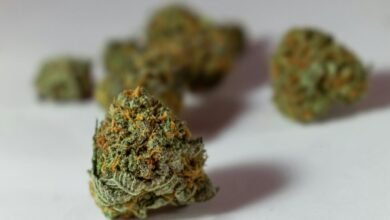Top Cannabis Strains for Sleep and Insomnia

Insomnia isn’t just about trouble falling asleep; it disrupts health, focus, and overall quality of life. With the rising demand for safer alternatives to conventional sleep aids, medical cannabis has gained prominence as a clinically viable solution. When applied professionally, its sedative properties can address both physical and neurological sleep disturbances. One option gaining traction among patients is cannabis for insomnia in Annapolis, which emphasizes tailored cannabinoid profiles for long-term relief.
How Cannabis Impacts Sleep
The endocannabinoid system plays a critical role in regulating sleep cycles, and certain cannabis strains interact with it to optimize deep sleep phases. Unlike synthetic options, cannabis offers a holistic approach, reducing anxiety, managing chronic pain, and supporting circadian balance.
An in-depth analysis of how medical marijuana can help insomnia illustrates how cannabinoids such as THC and CBN can reduce sleep latency and enhance REM duration without introducing chemical dependency or tolerance issues.
Recommended Strains for Professional Sleep Therapy
Professionals often recommend specific strains based on the patient’s unique clinical profile. These strains are selected not only for their cannabinoid content but also for their terpene composition, which contributes significantly to their sedative effect.
1. Granddaddy Purple
Known for its strong Indica lineage, Granddaddy Purple is a go-to strain for individuals with persistent insomnia. Its calming effects extend throughout the body, allowing for faster transition into sleep with minimal disruption during the night.
2. Northern Lights
Northern Lights is often recommended for its rapid onset of action and long-lasting effects. It reduces physical discomfort and mental agitation, making it ideal for individuals with pain-induced sleep disorders.
3. Tahoe OG Kush
This strain blends mental relaxation with physical sedation. Commonly administered in cases of stress-induced insomnia, Tahoe OG Kush supports uninterrupted rest without the grogginess often linked to over-the-counter sleep medications.
Role of Terpenes in Enhancing Sleep
Beyond THC and CBD, terpenes such as myrcene, linalool, and caryophyllene elevate the sleep-inducing potential of a strain. These naturally occurring compounds support muscle relaxation and mental decompression, helping the body transition more easily into restorative sleep phases.
Strains like 9 Pound Hammer and Bubba Kush are often highlighted by professionals for their high terpene profiles, making them highly effective for regulated therapeutic use.
Why Professional Oversight is Crucial
A strain that works for one individual may be ineffective or even counterproductive for another. This is where licensed medical professionals come in, conducting comprehensive assessments before prescribing any strain. Variables such as metabolism, medical history, concurrent medications, and the root cause of insomnia are analyzed to tailor a safe and effective regimen.
Professional intervention also ensures accurate dosage and proper delivery methods, significantly reducing the risk of misuse or unintended psychoactive effects.
Regulatory Compliance and Safe Access
Patients must adhere to regional laws regarding medical cannabis. Partnering with licensed dispensaries and certified professionals ensures access to lab-tested products, safe dosing, and long-term therapeutic planning. Avoiding unregulated sources is critical, as impurities or inconsistencies in strain composition can compromise treatment outcomes.
Conclusion
Professionally administered cannabis therapy offers a measurable path to reclaiming quality sleep. When matched to the individual’s underlying causes of insomnia, targeted strains can significantly improve sleep depth, consistency, and duration. Beyond symptom relief, patients often report enhanced mood, mental clarity, and resilience after sustained use under clinical oversight.
Moreover, a supervised approach minimizes risk while maximizing therapeutic benefits, bridging the gap between modern sleep science and plant-based medicine. Rather than a generic fix, this is a specialized, data-informed route — one that prioritizes safety, personalization, and long-term outcomes for those navigating complex sleep challenges.






